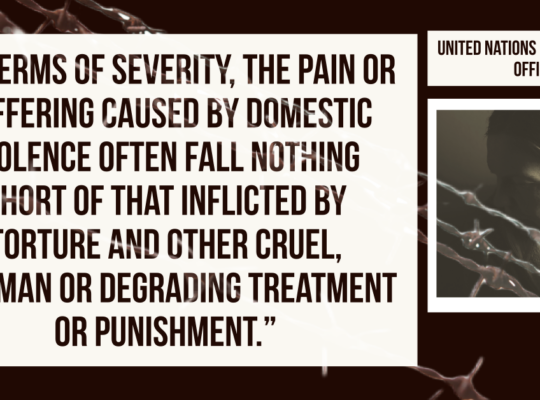The phrase “innocent until proven guilty” was never intended to be used in the context of the public making judgments about the conduct of celebrities, nor, crucially, was it intended to be used by those responsible for safeguarding. And the use of it in this context is where it becomes dangerous and problematic. The use if it in this context is why men like Jimmy Saville and John Smyth were able to remain in positions of power abusing people for decades
“Innocent until proven guilty” is a legal phrase, it’s proper use is in a criminal court and it is one of the foundational principles for criminal justice. It is right that we should not impose penal sanctions on people unless we have irrefutable evidence of their guilt. We cannot send a person to prison based only on ‘the weight of evidence’; rather the burden lies with the prosecution to prove without a shadow of a doubt that a crime has been committed. Until they have done so, a court is required to consider the defendant as innocent. This is how we prevent miscarriages of justice.
It’s also one of the reasons why intimate crimes, such as rape and domestic abuse are very difficult to secure convictions for. The burden of proof is so high.
Other courts such as civil courts and family courts, which are not concerned with handing out penal punishments, don’t require the same burden of proof, instead they will measure the balance of probabilities to reach their judgements. This can be why men who have been abusive may not have a criminal conviction but can still prevented from having unsupervised access to children.
When we are assessing risk we need to take the opposite approach to a criminal court. Whilst the criminal court says “if there is even the smallest chance this person did not commit this crime we cannot consider them guilty” those who are assessing risk need to say “if there’s even the smallest chance this person committed this crime we need to consider them a risk”
Because when we don’t we end up with perpetrators of abuse remaining in positions where they can continue to abuse people.
Safeguarding vulnerable people from abuse is everyone’s responsibility, we all have a part to play in doing this. Handing out criminal sentences is not everyone’s responsibility.
So when a man is accused of sexual misconduct, or abuse, unless you are on a jury or otherwise employed in the criminal trial, it is not your job to consider him “innocent until proven guilty.” It is your job to be part of a society that supports victims of crime. And, as someone who was once a victim of abuse, let me tell you now, assuming the abuser is “innocent” is not supportive to the victim.
Desmond Tutu famously said
“If you are neutral in situations of injustice, you have chosen the side of the oppressor. If an elephant has its foot on the tail of a mouse and you say that you are neutral, the mouse will not appreciate your neutrality.”
It is not our job to debate whether the elephant has it’s foot on the tail of the mouse, it is not our job to ask if the mouse is likely to be telling the truth, or to ask what the mouse did to provoke the elephant. It is not our job to argue that the elephant probably doesn’t mean to hurt the mouse, or that the elephant has been nice to other mice. It is not our job to wait for the outcome of an investigation about whether the elephant is on the mouse’s tail before we ask it to move.
It is our job to move the elephant away from the mouse. It is our job to keep the elephant away from other mice, it is our job to bandage the mouse’s tail, to comfort the mouse and help it recover. In time it may be the job of a court to decide whether the elephant did deliberately stand on the mouse’s tail and if so what punishment is appropriate. That court will, during it’s deliberations, presume the elephant is innocent until it is proven otherwise. We should not.
Because when we assume the innocence of an accused perpetrator, we hurt victims, and we fail in our safeguarding responsibilities.







